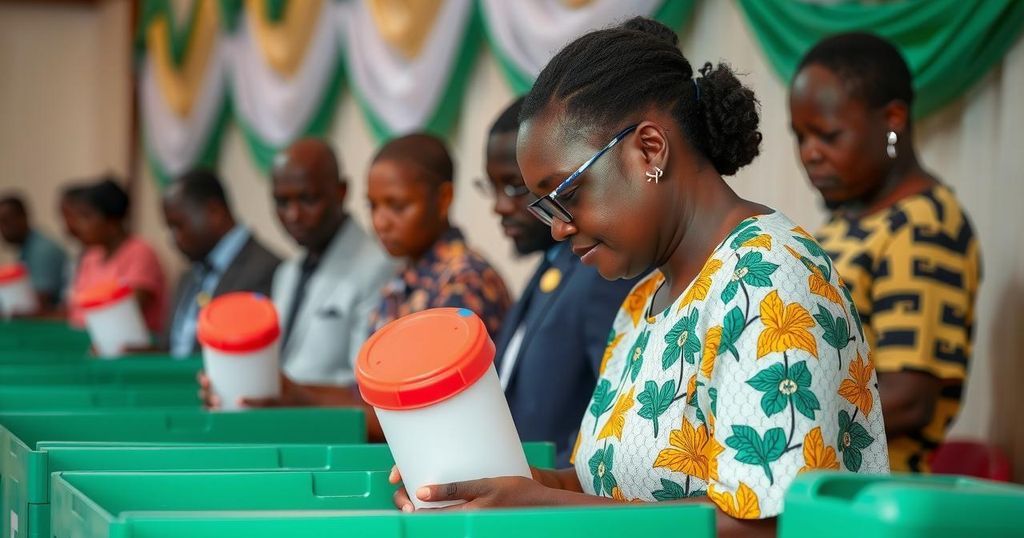Ghana’s general elections began on December 7, 2024, with 18.7 million voters registered. The elections are critical for the nation’s democracy amid a severe economic crisis marked by high inflation and unemployment. The leading candidates appear unlikely to offer significant change, raising questions about the future of governance in the country.
On December 7, 2024, Ghana commenced its general elections, which could serve as a crucial indicator of the nation’s commitment to democratic governance amidst increasing challenges. Approximately 18.7 million citizens are eligible to vote in both presidential and legislative races. However, the prevailing options presented by the two leading candidates have prompted skepticism regarding the potential for substantive change in governance, as the country grapples with an alarming economic downturn characterized by soaring inflation rates and widespread unemployment. Once regarded as a beacon of democracy in West Africa, Ghana now faces significant socio-economic hurdles that could undermine its democratic institutions.
Ghana’s political landscape has historically been viewed as stable and democratic compared to its neighboring countries. Nevertheless, recent years have seen a deterioration of economic conditions which has raised concerns about the sustainability of its democratic processes. High inflation and job scarcity have exacerbated public discontent, leading to questions about the effectiveness of the current political leadership and the prospects for future governance. This election is set against a backdrop of increasing extremist violence and military coups in the West African region, highlighting the importance of political stability in ensuring national security and resilience.
As Ghana progresses through its electoral process, the results will be pivotal in determining the future of its democracy and economic recovery efforts. The choices made by its electorate in this context will reflect the aspirations of its citizens for improved governance and stability. The looming economic crisis poses an additional challenge that the newly elected leaders must address urgently to restore hope and faith in democratic governance.
Original Source: abcnews.go.com






